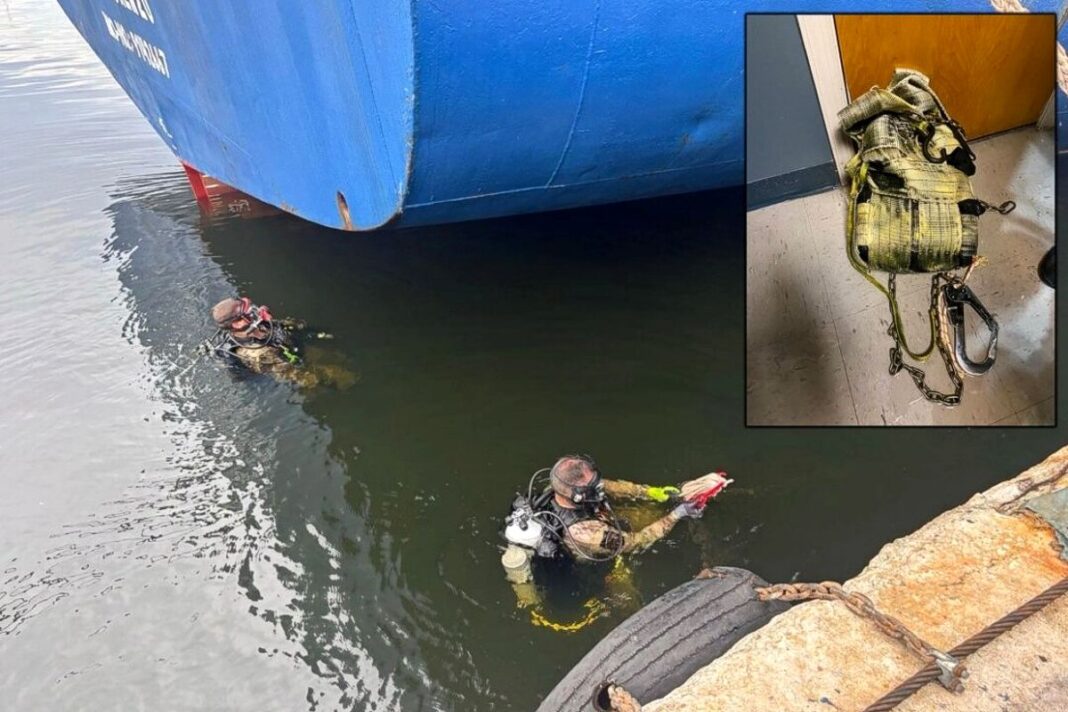Brian Townsend, a retired DEA special agent, said narcotics traffickers ‘adapt all the time to avoid enforcement and our interdiction operation.’
Although drug seizures in the United States have risen slightly year-over-year, according to U.S. Customs and Border Protection (CBP), traffickers continue to find increasingly ingenious ways to bring narcotics into the country.
U.S. Border Patrol (USBP) Chief Michael Banks said in a Sept. 25 post on X that his agency’s Border Patrol Search, Trauma, and Rescue Unit (BORSTAR) used specialized underwater cutting tools to extract 8 pounds of cocaine from the belly of a ship in the port of Miami two days earlier.
“USBP’s BORSTAR dive team plunged beneath Miami waters and discovered a parasitic load strapped to the hull of a vessel arriving from the Dominican Republic,” Banks said. “CBP Office Field of Operations seized the drugs. Our specialized team made history with their first ever parasitic drug seizure. This marks an innovative advancement to continuing narcotics interdiction efforts.”
In a practice known as parasite smuggling, drug cartels put narcotics into waterproof, often vacuum-sealed bags, which are hidden in compartments below the water line on ocean-going vessels such as container ships.
When the vessel reaches its destination port, divers working for cartels are sent down to retrieve the packages. The ship’s crew and owners are oblivious to the entire operation, hence the use of the term parasite.
“This does not surprise me at all,” Brian Townsend, a retired Drug Enforcement Administration (DEA) special agent, told The Epoch Times. “Organizations are always looking for new ways to smuggle drugs. They shift quickly and adapt all the time to avoid enforcement and our interdiction operations.”
Interdictions have intensified, especially this past year, and traffickers are looking to “mix their tactics to avoid single points of failure,” he said. “I wouldn’t look at parasite smuggling as a replacement for other methods, I see it as a supplement that diversifies risk.”
The Hoheplate, a ship registered in Antigua and Barbuda, was used by the parasite smugglers. The vessel traveled to Miami from Haina Occidental Port in the Dominican Republic.
Jim Weber, a former narcotics investigator with the Department of Homeland Security and founder of Streetwise Consulting, said parasite smuggling was an unconventional method.
“There are pros and cons to every method of smuggling,” Weber told The Epoch Times, noting that while the method was difficult to detect by law enforcement, it did not have the scope for trafficking substantial quantities of drugs.
“Do you want to stick it in a cargo container and move massive quantities with a higher probability of getting intercepted?” Weber said. “Or do you want to go with a bit of a lower quantity that is more covert, and smuggled less conspicuously?”
A CBP spokesperson told The Epoch Times that the agency is “acutely aware of and actively combats sophisticated methods employed by transnational terrorist organizations to smuggle illicit narcotics to the U.S. and Europe, including ‘parasite smuggling.’”








